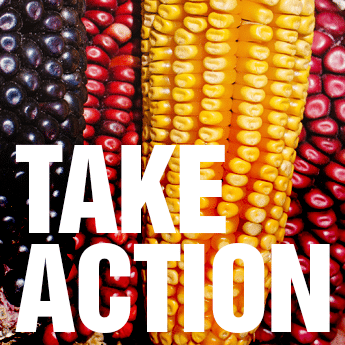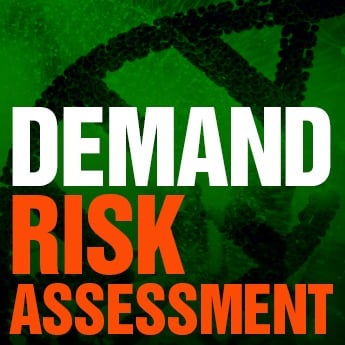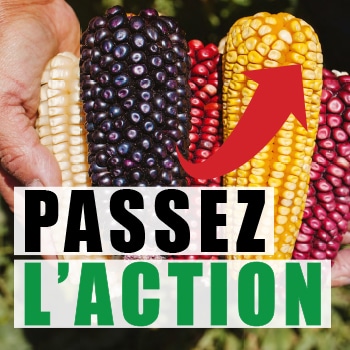What is Food Sovereignty?
The political tool of food sovereignty was developed by the global peasant movement La Vía Campesina and introduced into public debate on the occasion of the World Food Summit in 1996. Food sovereignty allows movements around the world be guided by, and work in solidarity with, the highly organized leadership of the international peasants’ movement.
Watch the 2023 Video Explainer from Via Campesina: What is Food Sovereignty?
In February 2007, farmer groups from across the world met in Mali for the Nyeleni Forum on Food Sovereignty. CBAN Member the National Farmers Union were among those who participated. CBAN Members the National Farmers Union and Union Paysanne are the two Canadian members of La Via Campesina.
Click here for a one page summary of the 6 Pillars of Food Sovereignty.
Food sovereignty is the right of peoples to:
- define their own food and agriculture
- protect and regulate domestic agricultural production and trade in order to achieve sustainable development objectives
- determine the extent to which they want to be self reliant; to restrict the dumping of products in their markets
- provide local fisheries-based communities the priority in managing the use of and the rights to aquatic resources.
– Statement on Peoples’ Food Sovereignty

Food sovereignty involves:
- prioritizing local agricultural production to feed the population and the access of women and men farmers to land, water, seeds and credit. Hence the need for agrarian reform, to combat genetically modified organisms (GMOs) to guarantee free access to seeds, and to keep water a public good to be distributed in a sustainable way.
- the right of farmers to produce food and the right of consumers to be able to decide what they want to consume, and how and who produces it.
- the right of all nations to protect themselves from excessively cheap agricultural and food imports (dumping).
- linking agricultural prices to production costs; this will only be possible if countries or unions of countries have the right to impose duties on excessively cheap imports, if they commit themselves to promoting sustainable rural production, and if they control domestic market production to prevent structural surpluses.
- engaging the participation of people in the definition of agrarian policies.
- acknowledging the right of women farmers who play a key role in agricultural production and in food issues.
The People’s Food Policy elaborates more about how we can build Food Sovereignty in Canada.






